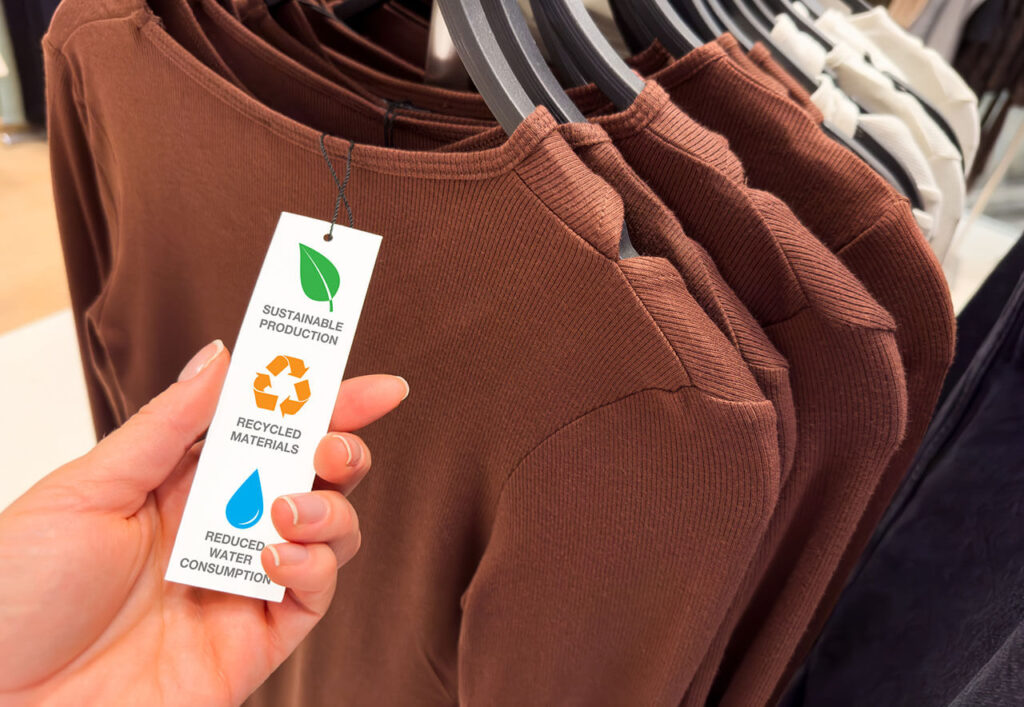Biến đổi khí hậu tác động sâu sắc đến cuộc sống hàng ngày ở mọi quốc gia trên toàn thế giới. Theo Báo cáo Đổi mới và Thích ứng trong Khủng hoảng Khí hậu của WEF, vào năm 2022, chỉ riêng thiên tai đã gây thiệt hại cho chính phủ và doanh nghiệp hơn $200 tỷ – 40% lớn hơn mức trung bình hàng năm trong 20 năm qua. Vì vậy, chính phủ và các tập đoàn phải đi đầu trong việc thực hiện các bước cần thiết để cắt giảm khí thải nhà kính toàn cầu (GHG) để tất cả chúng ta có thể tiến gần hơn đến mục tiêu Phát thải ròng bằng 0, đặc biệt là trong các lĩnh vực phát thải cao như sản xuất.
Trong sản xuất, nhiều công ty đã cam kết cải thiện các nỗ lực phát triển bền vững của họ trong những năm gần đây và một số quốc gia đã cam kết Không phát thải ròng vào năm 2050. Nhưng để những sáng kiến này thành công, các công ty cần ghi nhớ các tiêu chuẩn tuân thủ liên quan đến môi trường, doanh nghiệp và quản trị (ESG) và cách họ có thể đáp ứng các tiêu chuẩn đó một cách nhất quán.
Một số tiêu chuẩn ESG được công nhận trên toàn cầu cho đến nay bao gồm sáng kiến Mục tiêu dựa trên khoa học (SBTi), Sáng kiến báo cáo toàn cầu (GRI), Hội đồng tiêu chuẩn kế toán bền vững (SASB), Lực lượng đặc nhiệm về công bố tài chính liên quan đến khí hậu (TCFD) và Tổ chức tiêu chuẩn hóa quốc tế (ISO). Các chính phủ trên toàn thế giới cũng đã thực hiện các luật môi trường nghiêm ngặt và các tiêu chuẩn tuân thủ để đảm bảo các hoạt động sản xuất bền vững và có trách nhiệm, bao gồm các biện pháp chống lại việc tẩy xanh.
Tuy nhiên, việc đạt được sự tuân thủ về môi trường cũng đi kèm với những thách thức riêng. Ví dụ, các nhà sản xuất phải vật lộn để theo kịp chính sách môi trường đang phát triển và thấy khó khăn trong việc giám sát và giảm thiểu tác động đến môi trường trong khi vẫn duy trì hoạt động hiệu quả. Do đó, công nghệ đóng vai trò quan trọng trong việc đơn giản hóa việc tuân thủ môi trường trong sản xuất.
Công nghệ tuân thủ môi trường
Bằng cách khai thác sức mạnh của công nghệ hiện đại và các giải pháp bền vững thông minh mới, các nhà sản xuất có thể đáp ứng các tiêu chuẩn tuân thủ môi trường và đạt được hoạt động bền vững và thân thiện hơn với môi trường – mục tiêu cuối cùng của ngành.
Từ hệ thống giám sát tiên tiến cho đến các quy trình sản xuất sáng tạo, hiện nay có nhiều giải pháp công nghệ toàn diện hơn giúp các nhà sản xuất đáp ứng hoặc vượt quá các tiêu chuẩn tuân thủ về môi trường. Các giải pháp như vậy đã giảm đáng kể chất thải và cải thiện khả năng tiết kiệm chi phí cũng như hiệu quả hoạt động.
Một số công nghệ hiện tại được sử dụng để tuân thủ môi trường trong sản xuất bao gồm tăng cường tự động hóa, sử dụng IoT và phân tích dữ liệu để giám sát và giải pháp năng lượng tái tạo. Bằng cách khai thác các công nghệ thông minh này, các nhà sản xuất có thể theo dõi và giảm thiểu dấu chân môi trường của họ trong khi vẫn đảm bảo tuân thủ luật pháp và quy định về môi trường. Chúng ta hãy thảo luận thêm về chúng.
Tự động hóa để giảm tác động môi trường
Tự động hóa đóng vai trò quan trọng trong việc giảm tác động môi trường của hoạt động sản xuất. Từ tự động hóa quy trình bằng rô-bốt (RPA) đến AI và máy học, các nhà sản xuất có thể tiết kiệm thời gian và chi phí và truy cập các số liệu quan trọng. Điều này cho phép họ tối ưu hóa việc sử dụng tài nguyên, giảm thiểu chất thải và cải thiện hiệu quả năng lượng, cho phép họ dễ dàng đáp ứng các tiêu chuẩn tuân thủ môi trường.
IoT và phân tích dữ liệu để giám sát và tối ưu hóa việc sử dụng tài nguyên
Các Internet vạn vật (IoT) và phân tích dữ liệu đã trao quyền cho các nhà sản xuất với khả năng giám sát thời gian thực và hiểu biết sâu sắc hơn. Bằng cách sử dụng nhiều cảm biến và thiết bị kết nối, các nhà sản xuất có thể thu thập và phân tích dữ liệu chi tiết hơn và xác định các lĩnh vực cần cải thiện để họ có thể đưa ra quyết định sáng suốt nhằm giảm tác động đến môi trường.
Lấy ví dụ về IBM và Cơ quan Dữ liệu và Trí tuệ Nhân tạo Saudi. Hai thực thể đã đạt được thỏa thuận để nắm bắt và giảm lượng khí thải carbon trong các ngành công nghiệp. Là một phần của thỏa thuận này, IBM đã hợp tác với Water Transmissions and Technologies Co., một công ty truyền tải nước hàng đầu, để tự động hóa hơn 175 quy trình kinh doanh của mình. Trong trường hợp này, phân tích do AI thúc đẩy được sử dụng để theo dõi mức tiêu thụ năng lượng và cải thiện sự tuân thủ.
Giải pháp năng lượng tái tạo để giảm lượng khí thải carbon trong sản xuất
Việc áp dụng các nguồn năng lượng tái tạo như năng lượng mặt trời và năng lượng gió có thể làm giảm đáng kể lượng khí thải carbon của các nhà máy và hoạt động sản xuất. Bằng cách tích hợp các giải pháp năng lượng tái tạo vào hoạt động của mình, các nhà sản xuất không chỉ có thể đáp ứng được sự tuân thủ về môi trường mà còn có thể chủ động thực hiện các bước hướng tới tương lai Net Zero.
Xu hướng công nghệ tương lai trong việc tuân thủ môi trường
Trong khi việc tuân thủ môi trường có thể khó khăn khi các quy định liên tục thay đổi, các công nghệ mới nổi và tiên tiến như AI sáng tạo có thể hỗ trợ các nhà sản xuất đạt được mục tiêu tuân thủ môi trường, cho phép họ cam kết thực hiện quy trình sản xuất xanh hơn và quản lý nguyên liệu thô thông minh hơn.
Ví dụ, nếu một công ty cần xây dựng một nhà máy nhưng thiếu thông tin về vị trí và dữ liệu tác động sinh thái khác, công ty có thể sử dụng AI tạo sinh để thu thập cảnh quay trên không và phân tích dữ liệu này bằng các kho dữ liệu có sẵn: Dữ liệu và thông tin chi tiết càng tốt thì mức độ tuân thủ luật pháp và quy định về môi trường càng cao.
Những công nghệ này sẽ chỉ trở nên thông minh hơn và có tiềm năng cách mạng hóa các hoạt động sản xuất bền vững. Ví dụ, các nhà sản xuất có thể mong đợi phát hiện rủi ro trước sớm hơn nhiều, thúc đẩy họ thực hiện các hành động cần thiết để duy trì sự tuân thủ trước khi quá muộn.
Bắt đầu từ đâu để đạt được sự tuân thủ về môi trường
Để đưa các tiêu chuẩn phát triển bền vững của bạn lên một tầm cao mới, các nhà sản xuất cần biết phải đánh giá và đo lường những gì để họ có thể hiểu được những gì cần phải thay đổi và những công nghệ bổ sung nào, nếu có, là cần thiết. Xét cho cùng, nếu các quy trình không thể được đo lường, chúng không thể được cải thiện. Đó là lý do tại sao việc tận dụng các đánh giá và khuôn khổ về mức độ trưởng thành trung lập và khách quan như Consumer Sustainability Industry Readiness Index (COSIRI).
Với COSIRI, các nhà sản xuất được trao quyền để hiểu mức độ bền vững hiện tại của họ và cách cải thiện chúng khi họ có quyền truy cập vào các số liệu toàn diện trên khắp các công ty, ngành và khu vực địa lý cũng như thông tin chi tiết có thể hành động cho phép họ mở rộng quy mô chuyển đổi bền vững của mình theo các chiến lược hiện có của công ty và mục tiêu giảm phát thải. Đánh giá COSIRI cũng sẽ giúp bạn:
- Đáp ứng các tiêu chuẩn ESG toàn cầu · Đánh giá tác động môi trường hiện tại và tình trạng tuân thủ của bạn (sử dụng chuẩn mực khách quan và công cụ)
- Xác định công nghệ phù hợp nhất dựa trên nhu cầu và thách thức cụ thể của bạn
- Liên tục theo dõi và đánh giá hiệu suất của các công nghệ đã triển khai để thực hiện các điều chỉnh và cải tiến cần thiết
Để tìm hiểu thêm về cách COSIRI có thể giúp bạn tuân thủ môi trường và chuyển đổi bền vững, hãy truy cập INCIT.org hoặc liên hệ với chúng tôi tại [email protected] để bắt đầu một cuộc trò chuyện.



